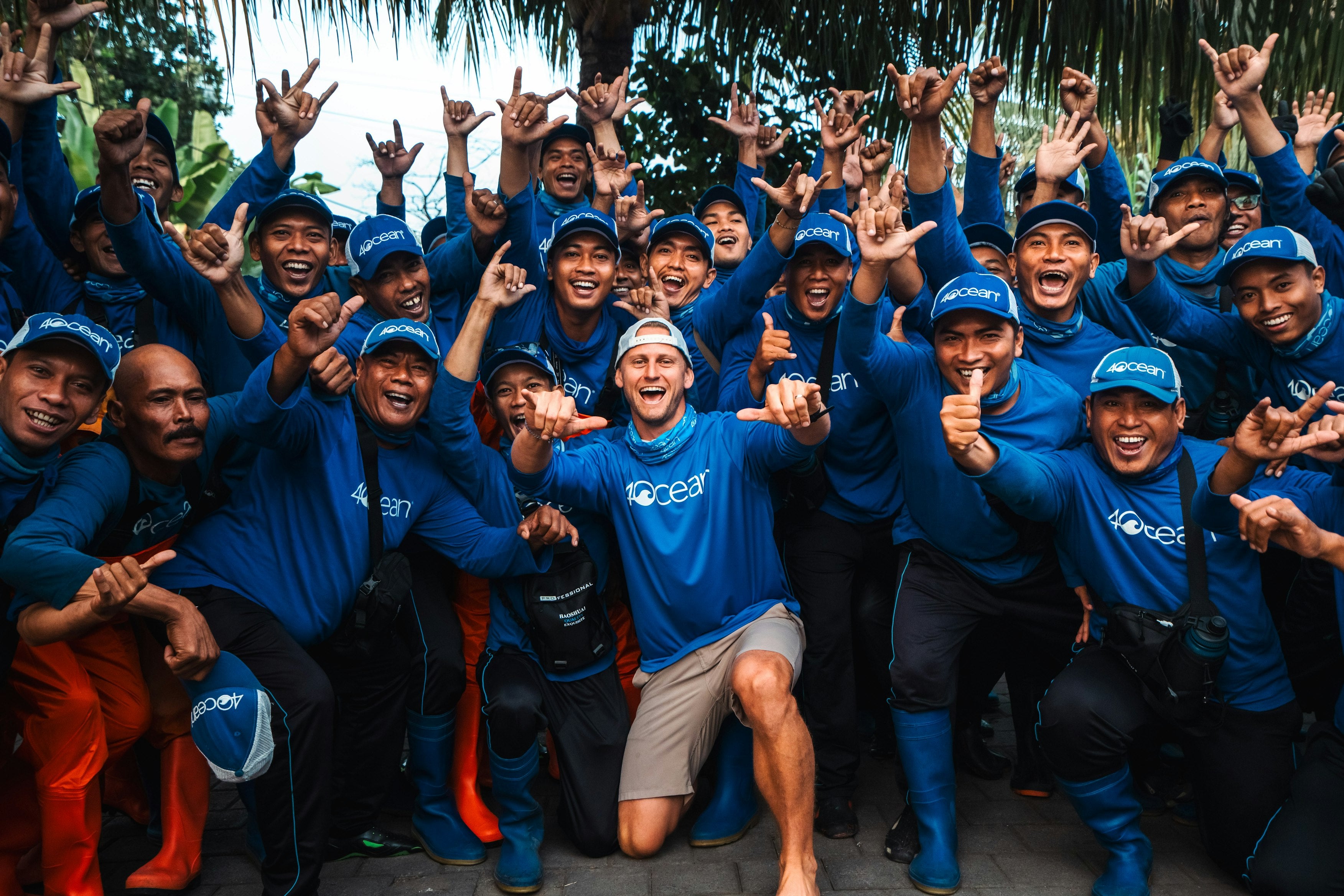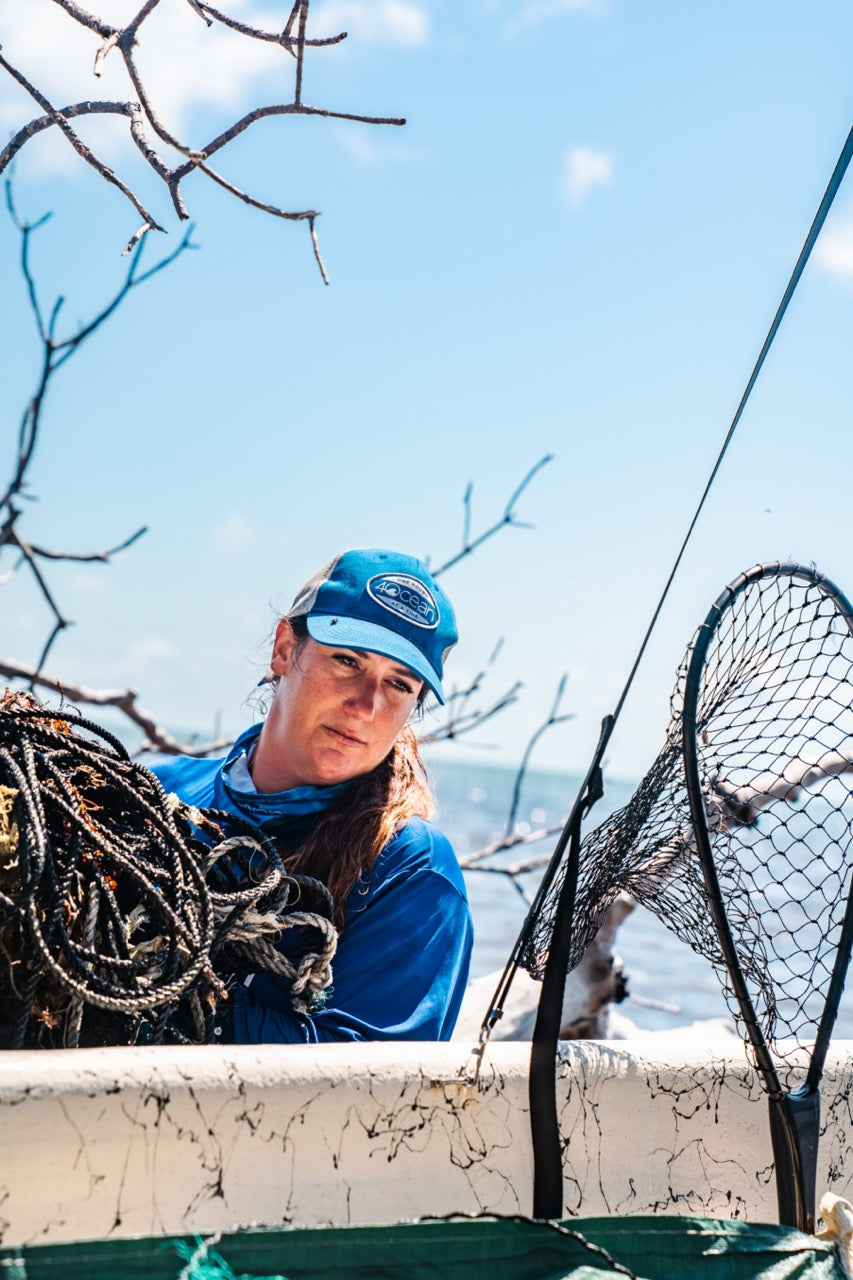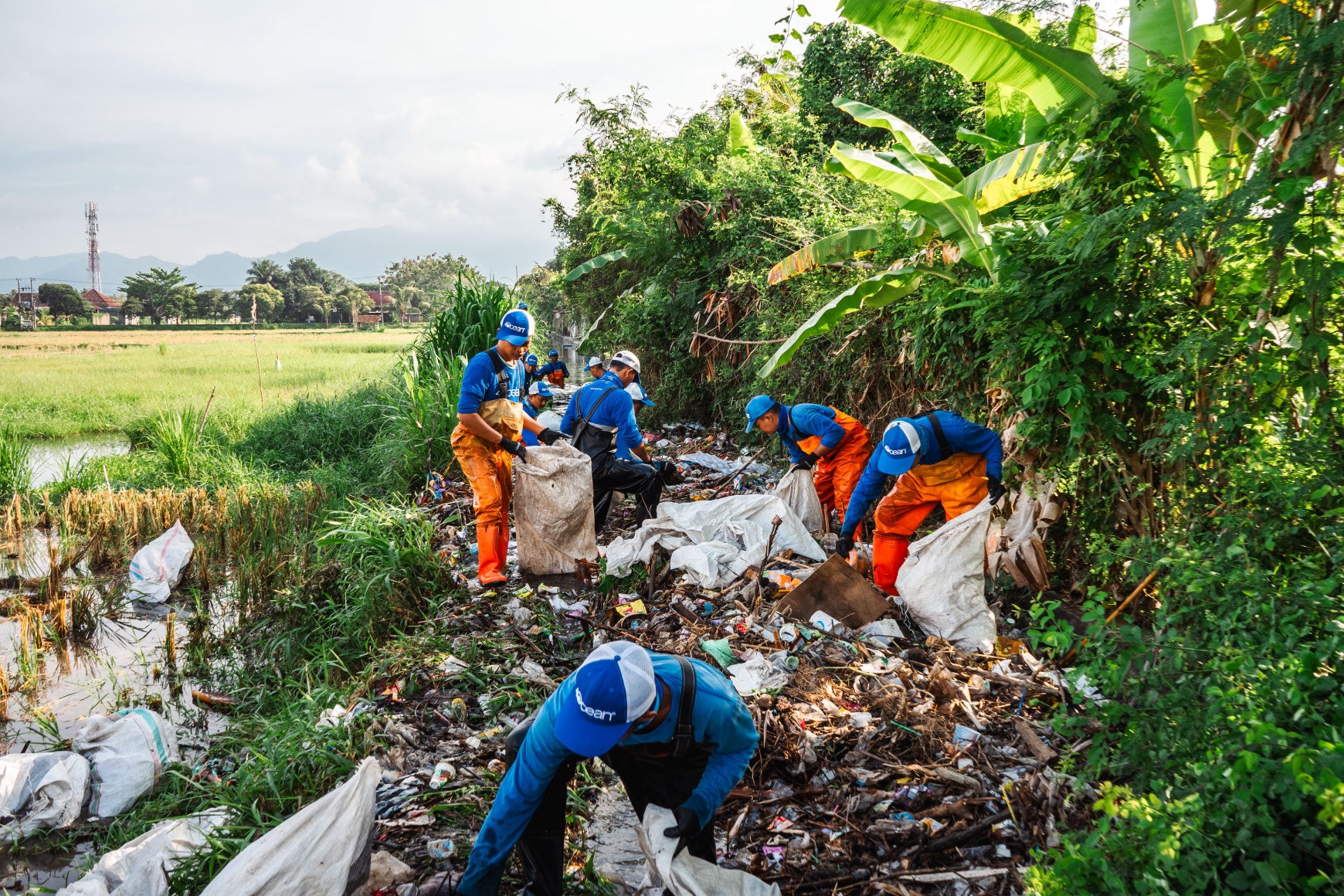5 MIN READ
01-18-2025
Rescuing an Egret and Restoring the Ijo Gading River
Kubik, 4ocean Bali Content Correspondent
The Ijo Gading River, a lifeline for communities and wildlife alike, often bears the scars of heavy rains. After every flood, plastic waste chokes its flow, tangled in fallen branches and riverbanks. On January 18, 2025, the 4ocean Jembrana cleanup crew set out with determination, knowing the challenges ahead. What they didn't expect was that their mission would soon turn into a rescue operation.
Led by their crew captain, the team—Irkam, Yusuf, Ahmad Habibi, Ainun, Fany, Imam Busairi, Miko, and Fasta—started the day in the river’s northern section, where the floodwaters had carried an enormous fallen bamboo tree. Its branches were ensnared with plastic waste: used sacks, fabric, single-use bags, diapers, and PET bottles, all woven into a suffocating net.
Removing the waste was treacherous. Some members lost their footing on the slick bamboo; one even fell into a gap between the branches. Yet, despite the dangers, their persistence paid off. After over an hour of meticulous effort, they freed the tree from its plastic prison, ensuring that future floodwaters wouldn’t drag the waste further downstream.
As they continued south, scanning the riverbank with a drone, Fasta noticed a flicker of movement in a Waru tree’s branches. A closer look revealed a heartbreaking sight: a fledgling egret, its leg hopelessly tangled in a discarded sack, unable to escape.
Ahmad Habibi, Yusuf, and Fany worked swiftly to free the distressed bird. Ahmad held its neck gently to prevent injury, while Yusuf and Fany untangled its fragile leg. The egret was weak, its wing injured from struggling for freedom. Carefully, they placed it on Yusuf’s shoulder, allowing its wing to dry as they transported it to a safer location.
When they attempted to release it, the bird remained too weak to take flight. Instead, they perched it on a sturdy mangrove branch, hoping it would recover. Hours later, when they returned, they saw it standing stronger—still unable to soar, but no longer trapped. The crew left with the hope that nature would do the rest.
Reflecting on the event, one team member shared a powerful message:
“We need to stop the habit of dumping trash into rivers and oceans. During floods, this waste spreads everywhere, polluting the environment entirely.”
The team hopes that more people will consider recycling instead of carelessly discarding plastic waste. Every action, no matter how small, can make a difference.


In a single day, the team removed an astonishing 1,280.55 pounds of waste from the Ijo Gading River. Left unchecked, this debris would have had devastating consequences. Clogged waterways would worsen future floods, making communities more vulnerable to disaster. Wildlife would face even greater dangers, leading to more heartbreaking incidents like the egret that was found trapped. And with each passing tide, the waste would drift out to sea, polluting fragile marine ecosystems and threatening countless species.
This cleanup was not just about removing trash—it was a battle for the survival of both the river and the life it sustains.
The day’s challenges—from navigating flood debris to rescuing a bird on the brink—left the crew exhausted but fulfilled. “It’s unimaginable what might have happened if we hadn’t found the egret,” one team member reflected. “Without help, it wouldn’t have stood a chance.”
Their efforts underscore a powerful truth: every piece of plastic removed, every life saved, is a step toward restoring balance. With every cleanup, they are not just fighting pollution—they are safeguarding the future of Bali’s rivers, its wildlife, and its people.








